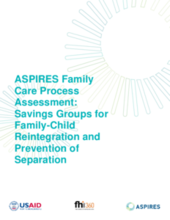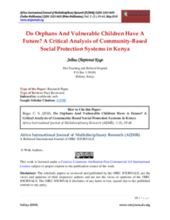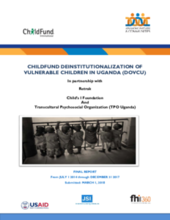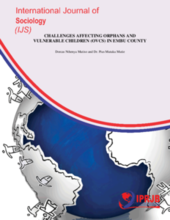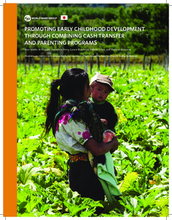Displaying 121 - 130 of 461
This evaluation examined the designs and implementation processes of the saving group components of ChildFund’s Economic Strengthening to Keep and Reintegrate Children in Family Care (ESFAM) and AVSI Foundation’s Family Resilience (FARE) projects in Uganda and identified practical lessons for implementers.
This paper focuses on the role of ‘soft conditionality’ implemented through both ‘labelling’ and ‘messaging’ in evaluating the impact of the Child Grants Program in Lesotho, an unconditional cash transfer programme targeting poor households with orphans and vulnerable children.
This paper analyses the role of community-based child protection structures for the survival and development of orphans and vulnerable children.
This final report on the “Deinstitutionalization of Vulnerable Children in Uganda” (DOVCU) project identifies its successes as well as some shortcomings and key learning that is directly relevant to other projects working to support family care for children.
Based on primary and secondary source materials, this article traces the evolution of the US social work field's response to the needs of unaccompanied immigrant and refugee youth during the past two centuries.
Providing relative caregivers the same financial benefits and supports as nonrelative foster caregivers is the focus of ongoing US federal litigation described in this article from the Child Law Practice Today July/August 2017 Issue on Kinship Care. The litigation addresses the equitable treatment of relatives who care for children in the child welfare system.
The purpose of this study was to assess the challenges affecting orphans and vulnerable children (OVCS) in Embu County.
This note and the accompanying full technical paper examine the existing evidence and the potential for bringing together cash transfer programs and parenting interventions to improve child development outcomes, notably cognitive performance.
The Community Opportunity Map is a tool that allows users to see localized indicators connected to community health and maltreatment prevention.
A desk review was conducted to examine the current gaps in investment related to care and treatment for children living with or affected by HIV.

